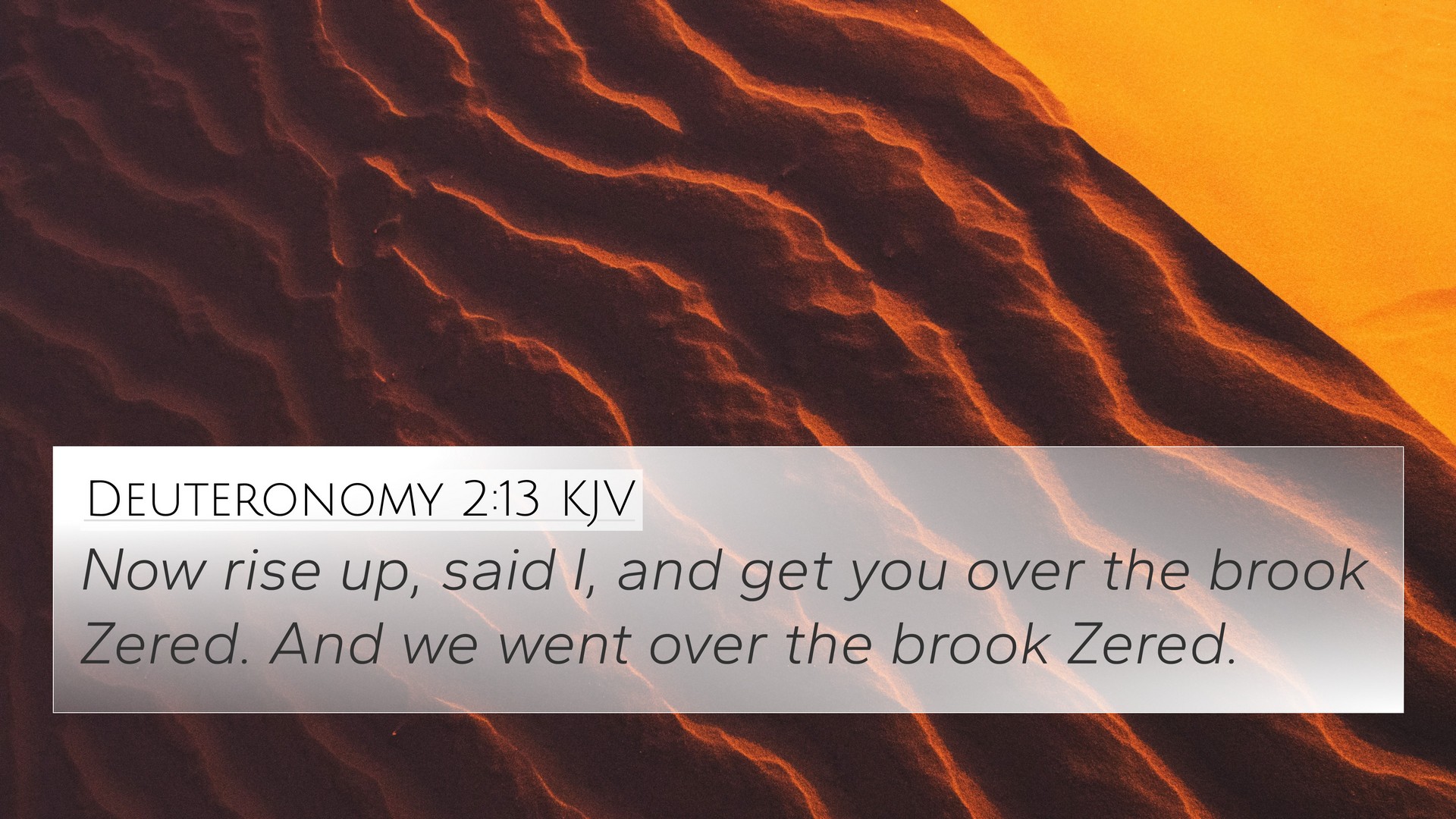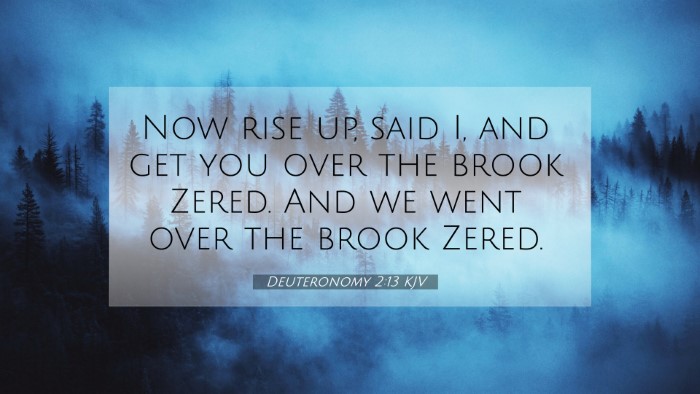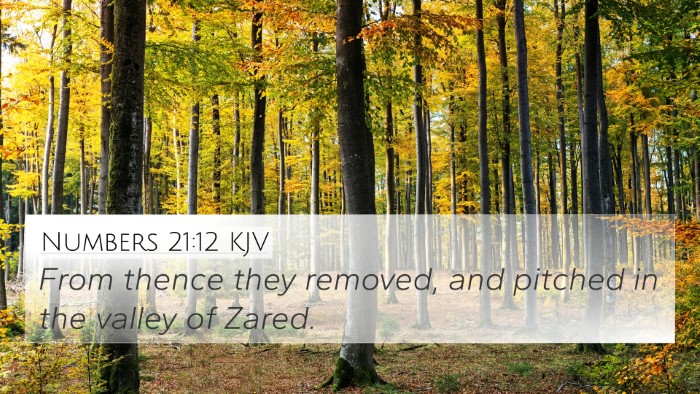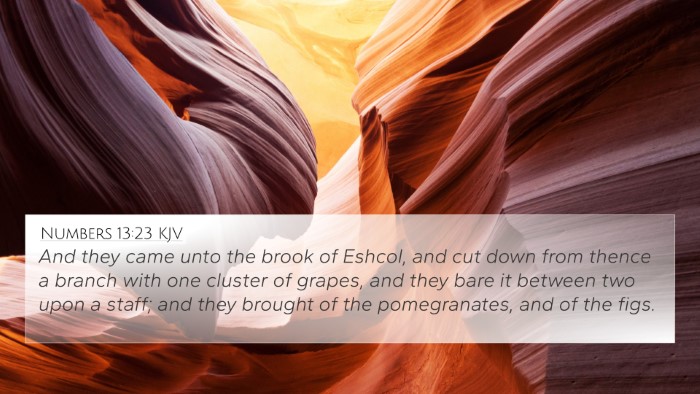Understanding Deuteronomy 2:13
Bible Verse: Deuteronomy 2:13
This verse states:
"And now arise, take your journey, and cross over the River Arnon. Look, I have given into your hand the Amorite king Sihon, and his land. Begin to possess it, and engage him in battle."
Verse Meaning and Context
The context of Deuteronomy chapter 2 is critical in understanding the significance of this verse. At this point, the Israelites are on the verge of entering the Promised Land after their lengthy journey through the wilderness. God commands them to rise and take action against Sihon, the king of the Amorites, signifying the importance of faith and obedience in claiming what God has promised.
Insights from Public Domain Commentaries
- Matthew Henry: Henry emphasizes the necessity of taking initiative in the face of God’s promises. He notes that the Israelites must rise and act; simply receiving a promise does not equate to possessing it. This divine directive is a call to faith that combines God’s assurance with human action.
- Albert Barnes: Barnes provides a historical context, asserting that this command is not merely about physical battle but represents a broader spiritual contest. He draws attention to God’s sovereignty in giving the Israelites victory over their enemies and encourages believers to trust in God’s power.
- Adam Clarke: Clarke highlights the geographical significance of crossing the River Arnon, explaining that it marks a boundary and signifies a transition into the land of promise. He expounds on the importance of the land and the Amorites in Biblical history, noting how God fulfills His promises through actions.
Thematic Connections
This verse resonates throughout the Scriptures, linking themes of divine promise, human agency, and the spiritual battle against opposing forces. The following are notable Bible verse cross-references that relate to Deuteronomy 2:13:
- Joshua 1:3: God reiterates to Joshua His promise of land.
- Romans 8:31: This verse asks, "If God is for us, who can be against us?" reflecting God's support in battles.
- 2 Corinthians 10:4: “For the weapons of our warfare are not carnal,” tying the physical battle to spiritual realities.
- Hebrews 11:30: The faith of the Israelites led to the walls of Jericho falling, illustrating that obedience carries profound consequences.
- Exodus 23:22: God promises to be an enemy to the enemies of His people, similar to His assurance in Deuteronomy.
- Psalms 44:3: Reflects on winning battles not by physical strength but through God’s favor.
- 1 John 5:4: Reminds believers that faith overcomes the world, linking to the victorious journey of the Israelites.
Learning through Cross-Referencing
Understanding Deuteronomy 2:13 within the broader biblical context highlights the importance of cross-referencing Biblical texts. By examining multiple scriptures that relate to the themes in this verse, one can gain a clearer understanding of God's overarching narrative of promise, conflict, and redemption. Tools for Bible cross-referencing, such as a Bible concordance or a Bible cross-reference guide, can enhance this study.
Exploration of Inter-Biblical Dialogue
The connections between Old and New Testament teachings can add depth to our understanding of this verse. The concept of a spiritual battle is prevalent in both Testaments, where God continues to call His people to rise and claim spiritual victories against darkness and opposition.
Practical Application for Believers
For modern believers, Deuteronomy 2:13 serves as a reminder that faith must coexist with action. It is not enough to know God's promises; believers are called to engage actively in claiming what is theirs through Christ. This approach can provide a framework for using Bible cross-reference systems to prepare sermons, teach, or enhance personal faith journeys.
Conclusion
Deuteronomy 2:13 encapsulates a pivotal moment in Israel's journey and illustrates powerful themes of divine assistance, the necessity of action, and the faithfulness of God. Through scriptural cross-referencing, believers can draw parallels between this passage and others, enriching their understanding and encouraging dynamic engagement with God's word.




